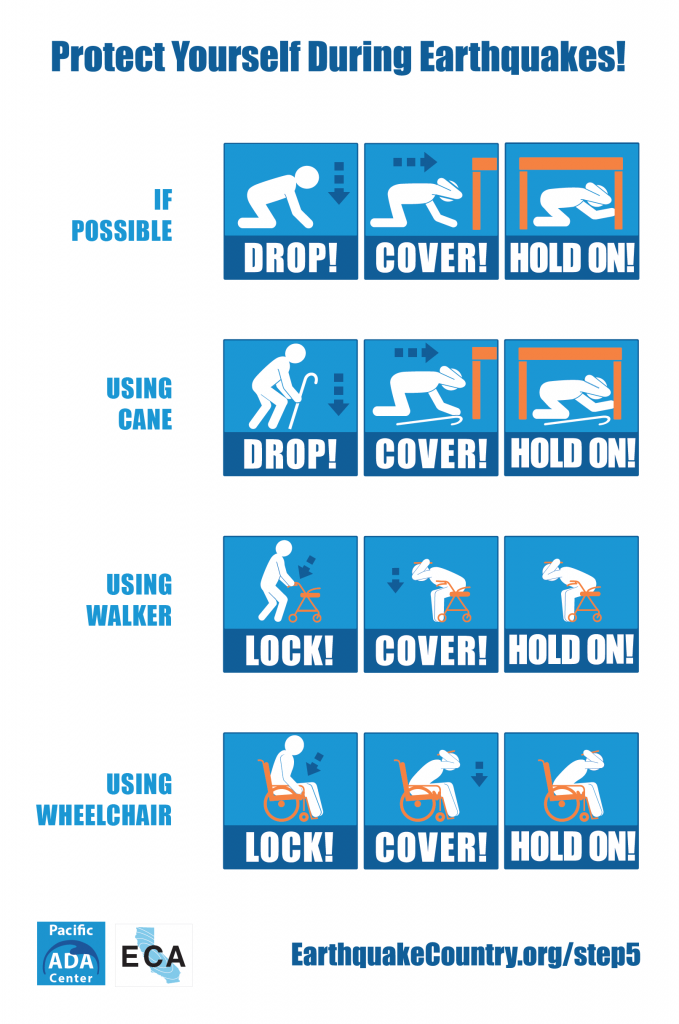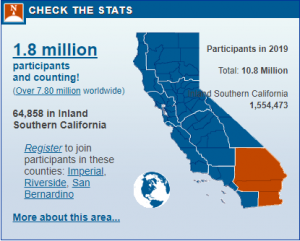 Earthquake Safety
Earthquake Safety
The Great California ShakeOut will take place on October 15, 2020.
In 2019, 64,858 in our region participated! If you were not able to, you can still register for another day this month; the important thing is that you practice your ShakeOut drill!
2019 Inland Southern CA Participation. Retrieved from https://www.shakeout.org/california/
The Inland Southern Region (ISR) of California has beautifully diverse communities, from metropolitan cities and mountains to valleys and deserts. With the vast region, comes great terrain at risk of geologic forces. Most people in the ISR live less than 10 miles from a fault that can be victim of a damaging earthquake. According to the California Office of Emergency Services (Cal OES), “The two most active faults in California run through the most populated areas of the region and the likelihood of a very large earthquake in this area is higher than almost any other place in the state.”
Please see below for helpful tips on preparing to survive and recover quickly from big earthquakes.
There are Seven Steps to earthquake safety. The Earthquake Country Alliance (ECA), Cal OES, and other experts in earthquake science, preparedness, and mitigation developed these steps to stay safe before, during, and after an earthquake.
PREPARE
STEP 1: Secure your space – identify hazards and secure heavy items
STEP 2: Plan to be safe – create a disaster plan
STEP 3: Organize disaster supplies – in convenient locations
STEP 4: Minimize financial hardship – organize important documents
SURVIVE & RECOVER
STEP 5: Drop, Cover, and Hold on – when the earth shakes
STEP 6: Improve Safety – after earthquakes by evacuating if necessary
STEP 7: Reconnect and Restore – reconnect with others, repair damage, and rebuild community.
Reduce your risk of injury by practicing “DROP, COVER, and HOLD” method during an earthquake.
Why this method?
- Trying to move during shaking puts you at risk.
- The greatest danger is from falling objects.
- The main goal of this method is to protect you from falling and flying debris while increasing your chance of ending up in a survivable void space.
Persons with Disabilities: See EarthquakeCountry.org/disability for recommendations for people who use wheelchairs, walkers, or are unable to drop to the ground and get up again without assistance.
Cal OES has published a safety and preparation booklet for the Inland Southern Region: “Staying Safe Where the Earth Shakes: Inland Southern California Edition. You can access it here.
Other Resources:
Recommended Earthquake Safety Actions (PDF)
Earthquake Guide for People with Disabilities (PDF)
Learn more on how to prepare and organize your family for an earthquake here.



